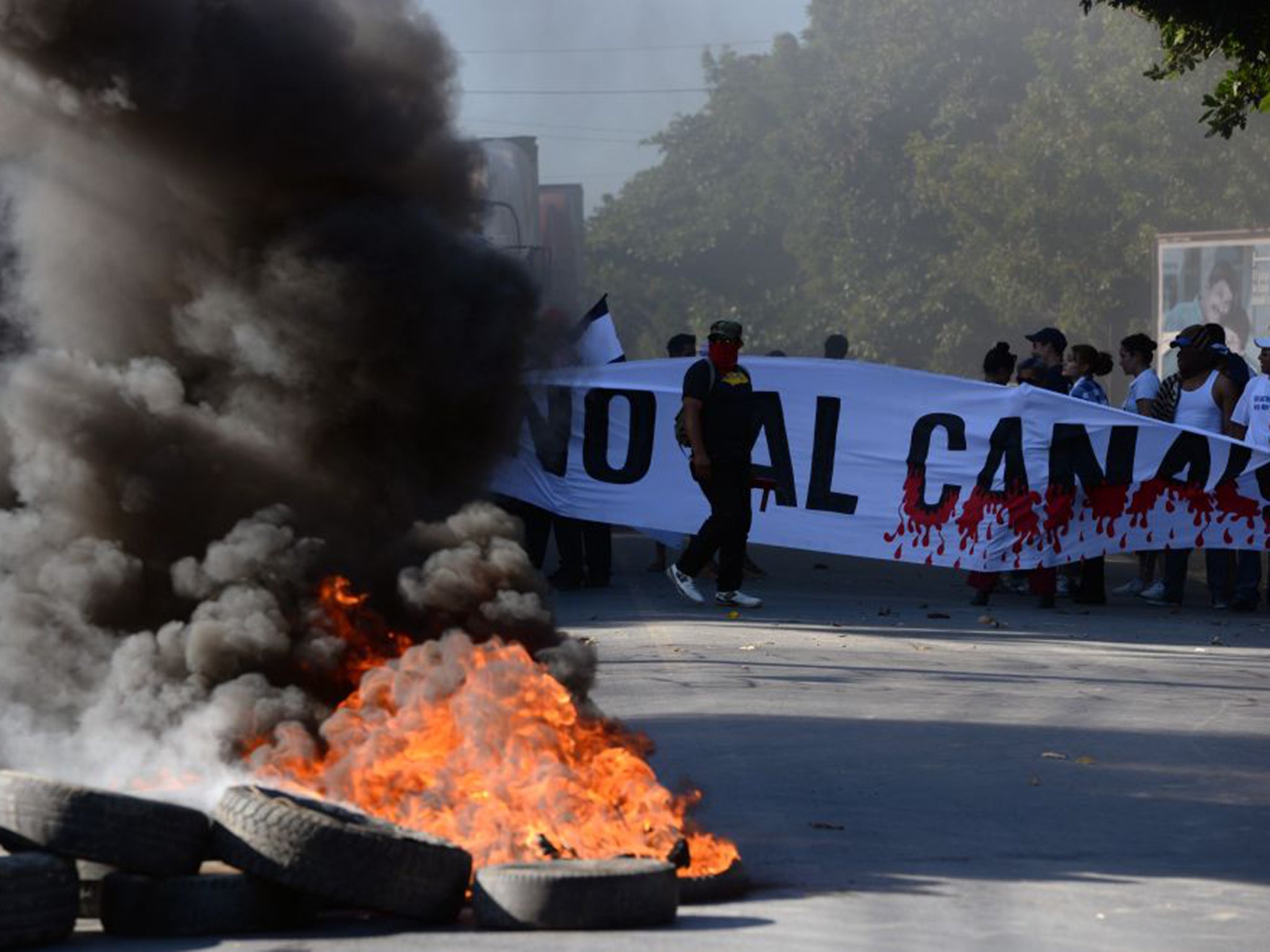Nicaragua faces questions over new canal after protest deaths, links to China and fears over environmental impact
Government faces questions over funding, China links and impact on environment

Police in Nicaragua have denied claims that at least two people were killed during violent protests that followed Monday’s inauguration of work on a proposed 173-mile canal to connect the Atlantic to the Pacific.
The government of President Daniel Ortega staged Monday’s groundbreaking event as it was besieged by questions about the $50bn (£32bn) project’s feasibility and desirability. At least 21 people were hurt and 33 arrested when hundreds of farmers protested, saying the project would force them from their land.
Suspicion has been deepened because of the role given to a little-known Chinese telecoms billionaire, Wang Jing, who, through a process that critics say has been anything but transparent, has been given the job both of building the canal and ancillary projects, including new ports, roads and hotels, and a 50-year concession to run it once it is open, with an option to renew for another 50 years.
According to some estimates, at least 30,000 people would be displaced by the canal. “We’re not going to allow them to kick us out of our property. We’re ready to die before we give our property to the Chinese,” said Orlando Ocampo, who leads an association of farmers. But claims made by activists that two protesters had died in this week’s protests were denied by the director-general of police, Aminta Granera.
The government has made the canal’s construction the centrepiece of its agenda. The Vice-President, Omar Halleslevens, said: “With this great canal, Nicaragua expects to move 5 per cent of the world’s commerce that moves by sea, which will bring great economic benefits and double the GDP.”
Promised reports into the financial feasibility of the canal’s construction and the likely social and environmental impacts have yet to be presented. The latter report is being prepared for the government by the British consultancy Environmental Resources Management (ERM).
The canal would bisect Lake Nicaragua, the region’s most important source of fresh water. The lake’s ecosystem could be endangered, environmentalists warn. “We’re at a crossroads because either you use the lake for floating boats or you use it for drinking water, but you can’t use it for both things at once,” said Victor Campos, assistant director of the Humboldt Centre, an environmental organisation.
The deal between Mr Ortega and Mr Wang’s Hong Kong-based Nicaragua Canal Development Investment Co has also raised eyebrows about the footprint it offers China in Central America. Mr Wang is permitted to develop the ancillary construction projects, including a new airport, whether or not the canal itself ever gets built. Both sides have said the canal will be open in five years.
Also not yet seen is a study by McKinsey, the management consultants, on the financial viability of the project, which President Ortega envisions as taking the place of the Panama Canal, and there have been mixed messages as to whether construction will be privately funded or if Chinese state cash may be involved.
Join our commenting forum
Join thought-provoking conversations, follow other Independent readers and see their replies
Comments